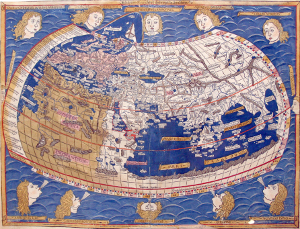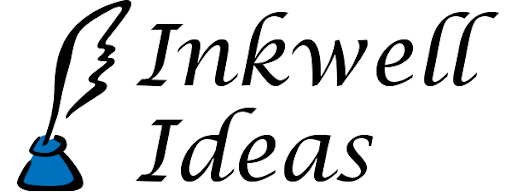Worldbuilding: Where to Start?

[This post in part of the February 2011 RPG Blog Carnival hosted by Evil Machinations. I’ve been looking forward to writing on the topic again but I’m not sure if I’ll have the time to do more.]
One question often asked when deciding to build a world for a game or novel (but especially games) is: Where to start? Usually this question is asked or steered in the direction of creating a map. Therefore popular opinion falls into two camps:
- Top-down: start by drawing a large scale map of the world or a continent and then add detail through smaller scale maps as needed.
- Bottom-up: start by drawing a small area which is important to the beginning of the story/campaign and draw larger scale maps or other small area maps as needed.
Both approaches are wrong.
You will get a better result if you start where you have the best ideas for the campaign/story! If you have several good ideas among different worldbuilding aspects (geography, cultures, pantheons, timelines/histories, local campaign area, etc.) then start with the one that is most essential or has the most impact to the others.
For example, if your story or planned campaign centers around a war of the gods, then maybe you should start by fleshing out your pantheon and let it drive your world’s timeline/history and geography and cultures. Perhaps the gods caused a cataclysm which impacts the world’s geography (maybe you’ll want to create before and after world maps.) In this scenario, since the gods are central to the story and are at war, what do they demand of their followers and how does that impact the world’s cultures? What world events have been caused over time by the war between the gods? How did it escalate? What were some other milestones? All of these can be part of the world’s timeline.
On the other hand, if you have a great idea for a campaign or story centered on political intrigue in a King’s court, then perhaps it is best to flesh out the major NPCs and draw the kingdom including parts of neighboring kingdoms. An idea such as this can lead you to consider what are the external pressures on the kingdom that affect the politics. Who is trying to influence the internal politics? Describe the cultures in the kingdom and how they impact the politics.
Keep in mind that if the world is for a game, it never hurts to talk to the players about your ideas at least in a general sense. If you’re considering a campaign centered on a kingdom’s politics and your players don’t care for that then maybe you need to work up another idea instead. Or at least find a way to twist your idea a bit so it will be enjoyable for all.
What if you don’t have a few ideas to consider when starting the worldbuilding process? Get some! Read a book, turn on the news, watch a DVD. Consider what if an event similar to one you read about or watched occurred in a different time. Or consider taking that concept and changing/twisting a few pieces of it.
Finally, what if you make a mistake? What if you need to go back on one of your worldbuilding decisions? For example, perhaps a large island or continent is in the way of something else… you do know the legend of Atlantis right? You can explain the continent away by saying it was only noted on a few maps and only a few explorers claimed to have seen it. Or maybe a war between two countries doesn’t fit your new chronology. This can be explained away by discrediting the source: those were stories more than histories, for example. Or perhaps if the countries involved are far away then what was really a small issue was mistaken for a war. Or perhaps news of the “war” was based on just one unreliable traveler’s word.
So to sum up, consider your ideas (perhaps with the input of your players) and flesh out the aspects of the world that are related to the most interesting or essential ideas to your planned campaign/story. As you work on one aspect of the world, others will be impacted and decisions will be made. Jot down these notes. Let yourself drift to creating a skeleton of those other world aspects as needed. Flesh those aspects out as needed or when you have good ideas. Never feel that you need to have a complete atlas and history for the world. (It doesn’t have to be complete before you start using it.) And remember that there are many reasons in the context of the story that will let you change things if needed.
